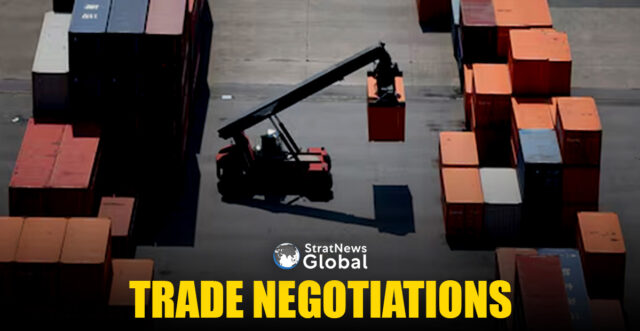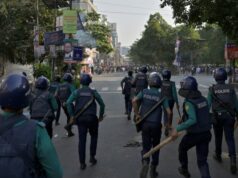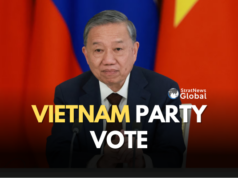South Korea‘s Trade Minister Yeo Han-koo is planning to visit the United States from June 22 to 27, the trade ministry announced on Saturday.
The visit will include discussions with U.S. Trade Representative Jamieson Greer and the third round of bilateral technical discussions, a ministry official told Reuters. Further details about the meetings were not disclosed.
“Since a South Korea-U.S. summit has yet to take place and key ministers have not been appointed under the new administration, negotiations are likely to focus on areas that the trade ministry can manage – excluding major issues such as defense cost – sharing and exchange rates,” Heo Yoon, an economics professor at Sogang University, said. “Given these circumstances, reaching a comprehensive agreement on key negotiation frameworks and agendas is expected to be challenging.”
South Korea, which is currently facing a 10% blanket tariff and a 25% country-specific duty temporarily paused for 90 days, agreed with the U.S. during initial trade negotiations in late April to craft a trade deal reducing tariffs by July 8.
However, political uncertainty triggered by leadership upheavals had stalled progress.
Asia’s fourth-largest economy unexpectedly contracted in the first quarter amid U.S. President Donald Trump’s sweeping tariffs and domestic political unrest following former President Yoon Suk Yeol’s martial law decree in December.
Seoul, which has a free trade deal with Washington, has been seeking a waiver from all fresh U.S. tariffs, though authorities have told Reuters that it would be challenging to achieve.
Ongoing Negotiations
South Korea is working against a tight deadline to secure tariff relief from the United States, after both countries agreed during initial trade negotiations in late April to finalise a deal by July 8.
Seoul is currently subject to a 10% blanket tariff on various goods and an additional 25% country-specific duty on key exports—measures that have disrupted bilateral trade and raised costs for South Korean manufacturers.
The 25% tariff was temporarily paused for 90 days to provide a window for negotiations, but that reprieve is set to expire in early July.
In response, South Korea has stepped up engagement with U.S. trade officials to reach a mutually acceptable compromise.
The discussions are focused on reducing or removing the duties altogether, while ensuring that American concerns about trade imbalances and strategic supply chains are addressed.
Trade Minister Yeo Han-koo has emphasised the urgency of concluding a fair and forward-looking agreement, citing the impact of tariffs on sectors such as steel, automobiles, and electronics.
Both sides are also exploring broader cooperation in emerging areas like semiconductors and green technology, which could serve as bargaining chips in the talks.
(With inputs from Reuters)





